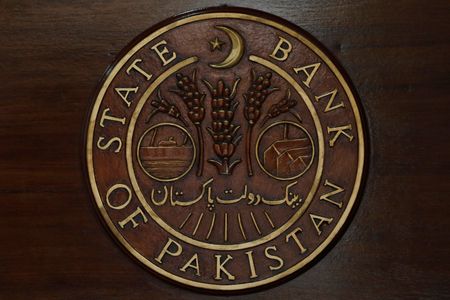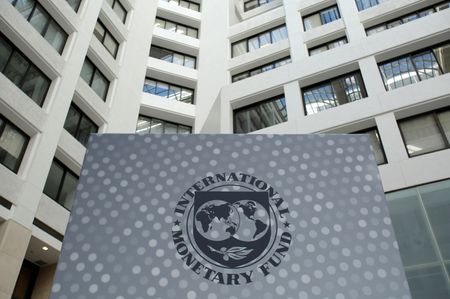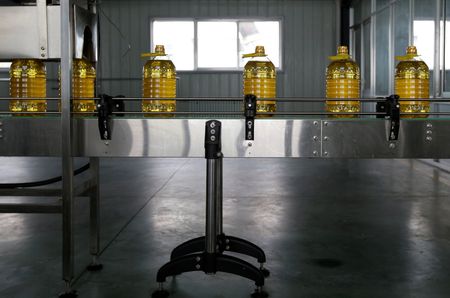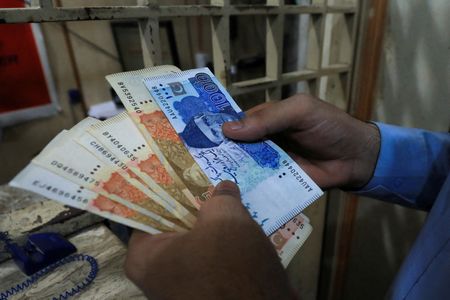By Ariba Shahid
KARACHI (Reuters) -Pakistan’s central bank is expected to cut its key interest rate by 50 basis points to 10.5% on Wednesday, a Reuters poll showed, with a unanimous forecast for further easing as inflation slows and external balances improve.
All 14 analysts surveyed expect the State Bank of Pakistan to cut rates, with nine projecting a 50 bp cut – also the median forecast – while four see a deeper 100 bp cut and one a 25 bp reduction.
Consumer price inflation stood at 3.2% in June, while average inflation for the fiscal year ending June 30 fell to a nine-year low of 4.49%, from 23.4% the year before.
With real rates firmly positive, most analysts expect easing to continue, backed by stabilising indicators and high government borrowing costs.
Sana Tawfik, head of research at Arif Habib Limited, said slowing inflation and an improved external account give the SBP room to cut, but warned that rising imports and currency pressure called for a cautious, data-driven approach.
Reserves, supported by International Monetary Fund inflows under a $7 billion programme and bilateral financing, have grown to more than $14 billion.
Renewed rupee pressure triggered a security-led crackdown on informal dollar trade, underscoring the government’s push to stabilise the exchange rate as the central bank considers further easing.
The SBP began cutting rates from a record 22% in June 2024 before pausing in March after 10 percentage points of easing. It then cut by a further 100 bps in May but held again in June as Iran-Israel tensions escalated.
Earlier this month, SBP Governor Jameel Ahmad told the Reuters NEXT Asia summit that the central bank would maintain a ‘tight’ stance to stabilise inflation within its 5–7% target, adding that its policy was already affecting both inflation and the external account.
Ahmed Mobeen, senior economist at S&P Global Market Intelligence, said the SBP is likely to cut rates further but may adopt a more “cautious” pace in the second half of the year due to rising import demand and global commodity risks.
Mustafa Pasha, chief investment officer at Lakson Investments, said the central bank could gradually lower rates into the high single digits in the first half of 2026, given stronger buffers and the completion of the budget and IMF review.
S&P Global upgraded Pakistan’s rating to ‘B-‘ from ‘CCC+’ last week, citing lower inflation, fiscal consolidation and stronger reserves.
(Reporting by Ariba Shahid in Karachi; Editing by Kirsten Donovan)










